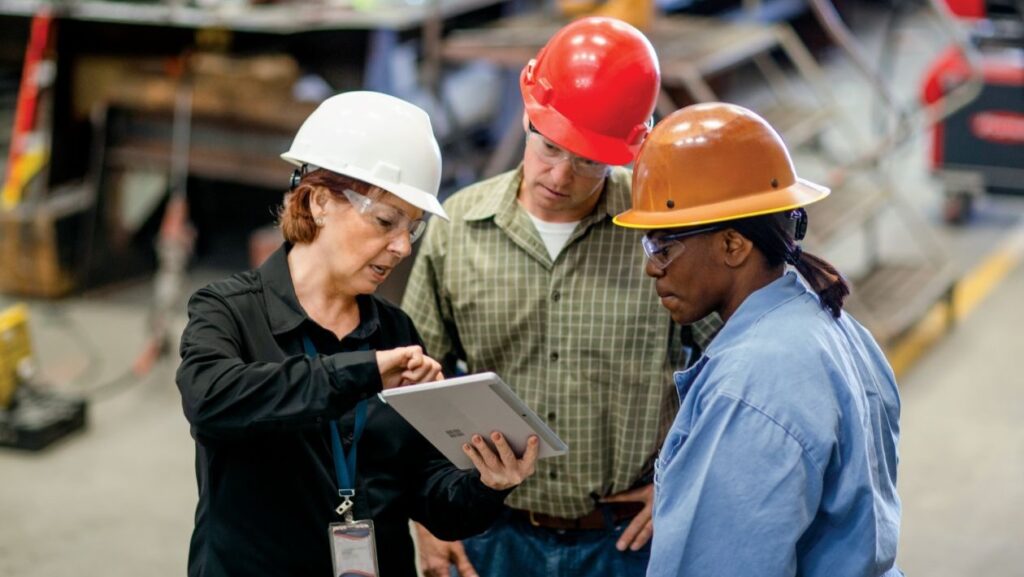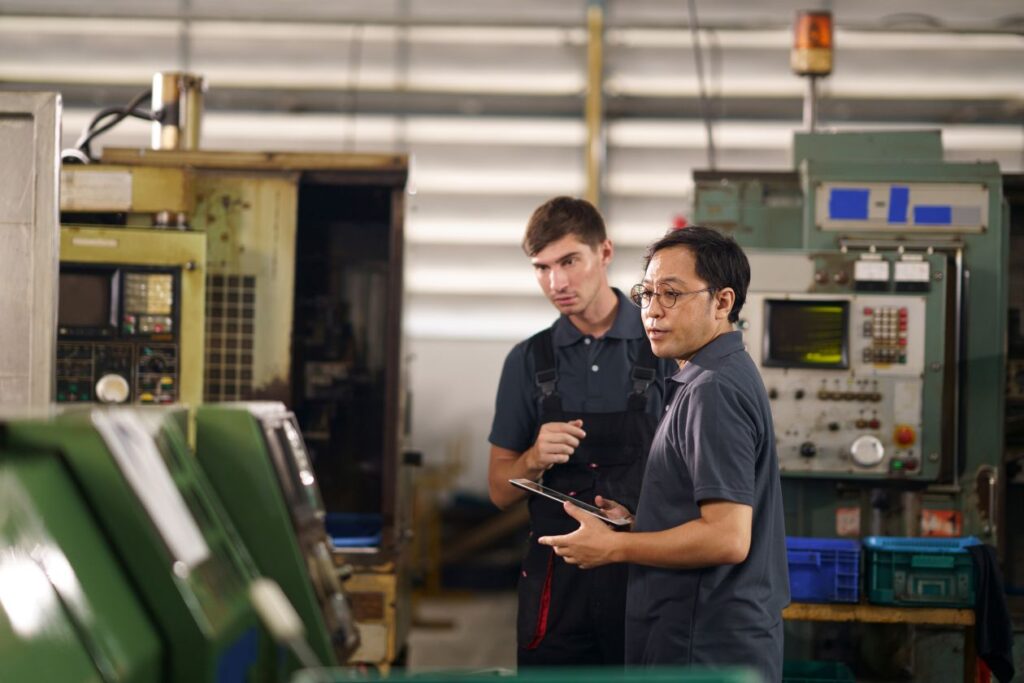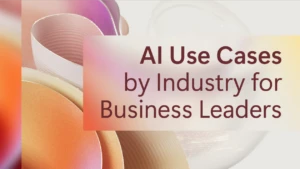
Unlocking the potential of manufacturing with cloud modernization
Manufacturers understand the pressure to modernize to harness the power of AI transformation with cloud-first approaches. Forrester quotes manufacturing and materials leaders saying, “our competitors are getting ahead of us, and ownership is just getting aligned with [modernization efforts] we need as a company,” and “[we’re increasing current modernization investment given] the need to improve digitization of the business and enhance employee and customer satisfaction.” These aren’t isolated opinions: of 412 manufacturers and automotive companies surveyed by Infosys, 73% are not only performing cloud migration efforts, but find them to be very effective or extremely effective in achieving their desired outcomes.1
Manufacturers are rapidly modernizing by using Microsoft cloud and AI solutions to transform key operations—streamlining product testing with cloud-based analytics, accelerating R&D through generative AI, and optimizing factory operations with intelligent automation.
For instance, BMW has enhanced the driving experience for over 13 million active users by integrating digital services within its vehicles. The MyBMW app, modernized with Cloud services, connects drivers to a range of digital features designed to enhance convenience and engagement. For BMW Group, this approach not only streamlines repetitive processes but also provides an open-source platform to support future scalability.
The time is now for manufacturers to modernize with AI in mind
BMW Group showcases its ongoing digital transformation in manufacturing. What began with a few sensor clusters has evolved into the Industry 4.0 revolution—the coming together of IT and operational technology to solve perennial challenges in manufacturing and heavy industry. Frontier leaders have achieved outcomes like Emirates Global Aluminum subjecting 97.5% more products to quality inspection, DEXIS reducing on-site service needs by 30%, and Fischerwerke construction enhancing the service life of structures.
Rockwell Automation describes today’s opportunity:
“Our customers are looking to us for faster delivery, new functionality, reduced time-to-value, and new ways of working[…] It’s a perfect time to bring the power of modern IT—including the cloud—to the factory floor.”
— Brian Shepherd, Senior Vice President for Software and Control at Rockwell Automation
The next wave of transformation—the AI and automation wave—has arrived. We’re seeing early adopters achieve significant business outcomes by integrating these technologies into their daily lives and work. The following section will highlight some powerful manufacturing success stories—each in key impact areas where leaders are modernizing with AI in mind.
Transforming the product testing lifecycle
Let’s talk again about BMW, this time overviewing how it has digitally transformed their product lifecycle through Internet of Things (IoT) cloud modernization and AI.
Cloud modernization: BMW was experiencing slowdowns due to the enormous amounts of data sent by its 3,500-car test fleet, To address this, it developed an IoT data recorder connected to Microsoft Azure cloud platform, using Azure AI services, Azure App Service, Azure Kubernetes Service (AKS), and Azure Data Explorer. This combination was able to handle the massive amount of IoT data while modernizing the apps that monitor, manage, and analyze it. The upshot? 10 times faster data delivery and analysis handling twice the volume.
Adapting and infusing AI: BMW wanted to democratize and scale the impact of this test data, so it connected with Microsoft to see how it could adopt a generative AI chat experience. By using Azure AI services, BMW made its data available through natural language queries while Microsoft Power BI provided data visualizations to empower decision-makers across all business roles. “We can put very complex raw data into an understandable and comprehensive web interface so many BMW employees who aren’t engineers are also able to access it,” explained Heinz Gebhart, co-creator of BMW’s IoT data recorder. “Azure is the turbocharger for delivering the right data to the right person on a large scale.”
Augmenting R&D innovation
For cutting-edge products to deliver real ROI, they need to address in-demand customer use cases. That’s why Denso, a leader in automotive parts manufacturing, embraced modernization to prepare the apps powering its advanced robotics for real-world applications.
Cloud modernization with AI: Denso, Japan’s largest automotive parts manufacturer, is exploring new markets for expansion (like advanced automotive safety features and connected driving to factory automation and agriculture). To transform its own operations and enhance customer satisfaction, it turned to autonomous robots powered by generative AI. However, this approach would have to look different than the apps and functions that ran its traditional robotics.
“Conventional robots are inflexible machines that act based on the movements and instructions they are given. In contrast, we are developing control technology in order to realize a human-like robot that acts according to human language and can also easily correct its errors in judgment when a human points them out.”
—Keitaro Minami, Project Assistant Manager of Automation Innovation Section, Business Innovation Department, Cloud Services R&D Division, Denso Corporation
Denso rearchitected its control program to interface with generative AI using Azure OpenAI, Github Copilot, and Azure App Service. This let them significantly streamline development and allowed a container approach to address future customer use cases where robots cannot always be connected directly to the cloud.
Optimizing factory operations
After a major company shift, powertrain solution provider Aurobay needed to rebuild their digital environment, including apps and infrastructure that ran mission—critical operational devices on the factory floor.
Cloud modernization: Aurobay collaborated with Microsoft to implement a hybrid cloud architecture powered by Microsoft Entra ID and Azure Arc. This initial migration prepared it to better manage its operational applications both on-premises and in the remote cloud using Azure Virtual Machines and Azure Kubernetes Service.
“A specialist team from Microsoft helped us set up the full Azure tenant with all the landing zones, subscriptions, and group policies, which was critical in getting this right from the start.”
—Carol Wittgren, Head of Digital Acceleration at Aurobay
Adapting and infusing AI: With new software and architecture leadership in place, Aurobay is continuously embracing innovative methods of data modeling and management to maximize its data, taking its capabilities to the next level with Azure AI services, Azure Machine Learning, and Azure high-performance computing (HPC).
Modernize your manufacturing
Microsoft cloud and AI offerings provide end-to-end solutions for manufacturing, supporting interoperability, scalability, and modernization from backend to frontline. Azure enables manufacturers to modernize efficiently while minimizing risks and maximizing the benefits of AI-powered tools.
We invite you to learn more about partnering with Microsoft to unlock real-world manufacturing modernization, including how to innovate by accelerating cloud and AI adoption.

Modernize for AI innovation
Accelerate app and data estate readiness for AI innovation with Microsoft Azure
1Cloud Radar: Manufacturing Industry Report, Infosys, April, 10 2024.




